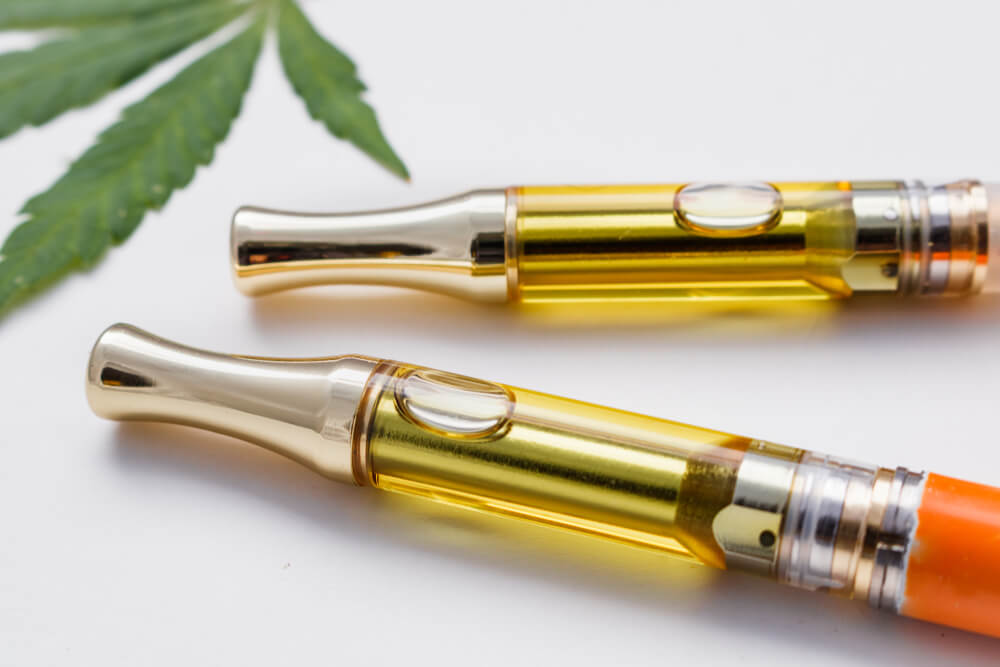 By Rachel Kurtz-McAlaine, NCIA’s Deputy Director of Public Policy
By Rachel Kurtz-McAlaine, NCIA’s Deputy Director of Public Policy
After months of delay, the United States Postal Service (USPS) has released its FINAL rule enforcing the Prevent All Cigarette Trafficking (PACT) Act, effective October 21, 2021, and unfortunately, they are indeed applying it to cannabis/hemp vaporization products. The PACT Act has now made it extremely difficult for anything related to vaporization to be mailed, either business to business (B2B) or business to consumer (B2C). Your business could be affected even if you are not mailing out products. Although this is a massive burden on the cannabis/hemp vape industry, there are ways to deal with it. NCIA remains vigilant in making sure the federal government understands this unnecessary hardship to the industry, and making sure our members are fully educated on this issue.
What is the PACT Act?
The Prevent All Cigarette Trafficking (PACT) Act went into effect June 29, 2010, applying strict regulations to the mailing and taxation of cigarettes and smokeless tobacco products, effectively banning the mailing of cigarettes unless authorized by an exception. With the rise of e-cigarettes, especially their popularity among youth, Congress decided that vaporization products should be included in those provisions. On December 27, 2020, Congress modified the definition of “cigarettes” to include Electronic Nicotine Delivery Systems (ENDS), broadly defining ENDS to include nearly all vaporization products, regardless if they contain nicotine or are used for nicotine. Specifically:
“(1) any electronic device that, through an aerosolized solution, delivers nicotine, flavor, or any other substance to the user inhaling from the device; and (2) any component, liquid, part, or accessory of an ENDS, regardless of whether sold separately from the device.”
When the USPS issued their notice of proposed rulemaking, they received more than 15,700 comments, with many expressing frustration with the broad interpretation of ENDS, so the USPS delayed issuing FINAL rules while it considered the practical application to the unique cannabis and hemp industries. NCIA was proud to submit comments with a broad coalition and to issue an action alert to get our members to express their concerns.
In the meantime, the USPS issued a guidance document (“April 2021 Guidance”) (86 FR 20287) to help prepare businesses for the final rule and what documentation will be needed to apply for an exception. The exceptions include:
- Intra-Alaska and Intra-Hawaii Mailings: Intrastate shipments within Alaska or Hawaii;
- Business/Regulatory Purposes: Shipments between verified and authorized tobacco-industry businesses for business purposes, or between such businesses and federal or state agencies for regulatory purposes;
- Certain Individuals: Lightweight, non-commercial shipments by adult individuals, limited to 10 shipments per 30-day period;
- Consumer Testing: Limited shipments of cigarettes sent by verified and authorized manufacturers to adult smokers for consumer testing purposes; and
- Public Health: Limited shipments of cigarettes by federal agencies for public health purposes under similar rules applied to manufacturers conducting consumer testing.
18 U.S.C. 1716E(b)(2)-(6). These exceptions are the ONLY way to mail these products moving forward. Unfortunately, the USPS was not accepting applications for exceptions until the final rule was published, but now that it has been published, it is time to apply for an exception.
FedEx and UPS have already banned delivering these products, so they are out as an alternative.
How can it affect me?
If you manufacture, sell, or buy vapor products, you will be affected. Manufacturers and distributors who use the mail to get their products to stores for resale (B2B) will have to apply for an exception through the USPS Pricing and Classification Service Center. If you are a business receiving these products, you will have to work with the business that mails it to you to be included in their exception as a recipient. If you are a retailer who delivers vaporization products to consumers via the mail, such as online retailers (B2C), you will also need to apply for an exception. If you buy the end products as a consumer, expect an increase in price because of the extra costs placed on the suppliers.
What should I do?
If your business has ANYTHING to do with the manufacture, delivery by mail, or retail of cannabis/hemp vaporization products, including liquids, batteries, empty cartridges, etc., you should get familiar with this final rule that is in effect as of October 21, 2021. The USPS spends the time addressing potential issues or suggestions from the comments it received, so any questions of why they did something are probably answered there.
You will also want to read the guidance document the USPS issued in the Spring that details if you qualify for an exception and how to apply for it. This will require cooperation between the mailer and the recipient, so make sure you are working with your supplier/retailer to get all the necessary information.
What is NCIA doing?
NCIA remains committed to making sure our members understand all of the legal ramifications and how to continue operations despite this rule. We continue to work with our coalition partners to better understand the effects and best practices, and will share with you as much information as possible to ease the transition via blog posts and webinars.
I will be participating in a webinar on November 9, 2021, that will be diving deeper into the PACT Act, how your business can operate with it, and how, if any, the tax considerations of the PACT act apply to cannabis/hemp businesses: PACT Act Leaves Vaping & CBD Industries in a Fog: The Latest Tax and Legal Considerations.
As always, feel free to contact me Rachel@TheCannabisIndustry.org with any questions or concerns.


Follow NCIA
Newsletter
Facebook
Twitter
LinkedIn
Instagram
–